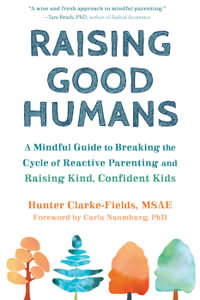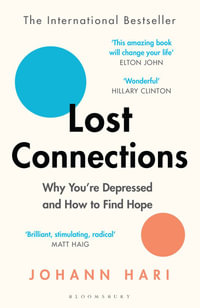In this book, Marcus Evans argues that in addition to providing a helpful treatment for patients who suffer from serious psychological difficulties, psychoanalytic thinking can also help mental health staff develop a better understanding of their patients and complement other ways of thinking about mental disturbance. Mental health professionals need to be receptive to their patients' projections and communications, but these powerful projections can become overwhelming, especially for clinicians who are in direct contact with their patients for long periods of time. A psychoanalytic model which puts the understanding of the relationship between the clinician and patient at the centre of its preoccupations can also give mental health professionals a language for describing their experiences of, and interactions with, their patients. This model is developmental and provides a dynamic picture of the ways in which different parts of the patient's self wrestle for control of the patient's mind over time. Evans argues that this framework for understanding can help in the day-to-day management of these changes and fluctuations. Evans believes that the diagnosis and active interventions employed by psychiatry need to be accompanied by a receptive approach to treatment and care. Mental health professionals need to be interested in the meaning of their patient's symptoms and verbal and physical communications. These may convey important information about the patient's internal world and underlying conflicts. This receptive approach requires mental health professionals to make a switch from the active state of mind demanded by active interventions, to the receptive state of mind required by the need to take in the patient's emotional state and underlying personality structure. Making Room for Madness in Mental Health draws on the author's extensive experience of working psychoanalytically with people with severe and enduring mental illness, as well as providing psychoanalytic supervision and consultation in a range of mental health settings to show how psychoanalytic ways of thinking may complement other approaches to mental disturbance by highlighting the communication and meaning of such disturbance. This is illuminated by lively clinical vignettes, supported by accessible accounts of key psychoanalytic theory. Working with people with mental illness can be rewarding and enlightening. It can also be disturbing, frightening, boring, frustrating, anxiety provoking and stupefying. Evans argues that we need to provide room and space for mental health professionals to reflect upon and think about their experiences on a day-to-day basis, and to train clinicians to senior levels in order that they can offer clinical supervision to front-line staff, which can help them develop ideas about the meaning of their patients' symptoms and behaviours. Psychoanalysis offers a model for thinking about and providing meaning for, the anxieties that drive us 'out of our minds', and this can reduce the risk of thoughtless action. To some extent this involves putting the madness back into mental health.
Industry Reviews
'This book will help all health professionals who want to learn how to listen to their patients and try to understand what it feels like to be mentally ill. It can enable us all to tolerate the distress of psychiatric disorder and to make a place for it in our hospitals and clinics as well as in our minds.'- John Steiner, training and supervising analyst of the British Psychoanalytical Society and author of Psychic Retreats and Seeing and Being Seen'Marcus Evans has written a most important book that will be of great value to all who work with severe mental illness in front-line mental health teams. Through his use of many detailed clinical examples, he demonstrates the value to staff of time for reflection with an experienced psychoanalytically trained practitioner in developing a greater understanding of their patients and their effects on the individual, team and management structures. I anticipate this book will be recommended reading for decades to come for nurses, psychologists and psychiatrists as well as psychotherapists of all modalities.'- Dr Brian Martindale, psychiatrist and psychoanalyst of the British Psychoanalytical Society; formerly chair of the International Society for the Psychological Treatments of the Schizophrenias and other Psychoses'This is a book of great value for all concerned, in whatever way, with the treatment of severely mentally ill patients. We see the problems and sufferings of the patients, their strange and disturbing engagements with staff, and the resulting problems and need for support of the staff. But the paramount fact, as Marcus Evans shows, is the way that the psychoanalytic method does not keep insanity out of view, but tries to offer madness a habitat and human understanding.'- Edna O'Shaughnessy, distinguished fellow and training and supervising analyst of the British Psychoanalytical Society'Marcus Evans has produced a very valuable addition to the literature on applied psychoanalysis. For me its principle value is the clarity with which he explains how a psychoanalytic approach to psychopathology can illuminate both difficult to treat psychiatric patients, and also the social dynamics of the clinical team in interaction with the complex patient. Marcus Evans, like many of us, is deeply troubled by the current trend within mental health towards over-simplification and cost-cutting that fails to cut costs in the longer term. One of the negative consequences of this is loss of the expertise needed to support more junior staff in coping with the huge emotional as well as intellectual demands that some complex psychiatric patients make on them. I strongly recommend this book to anyone interested in how psychoanalytic theories can be effectively put into practice in the course of delivering mainstream psychiatric care.'- Dr David Somekh, Network Director, European Health Futures Forum, forensic psychiatrist, psychoanalyst, British Psychoanalytical Society'The relationship between phenomenological and dynamic approaches to understanding mental health and illness has shaped the last century of British psychiatry. Although often a thorny relationship, Marcus Evans in this book highlights just how important the relationship remains if we are to understand and work with real humanity. Psychiatry needs dynamic understanding just as psychoanalysis needs psychiatry. This text should be essential reading therefore for anyone interested in deepening their practice.'- Dr Matthew Patrick, Chief Executive of the South London and Maudsley NHS FT, psychiatrist and a training and supervising analyst with the British Psychoanalytical Society
























